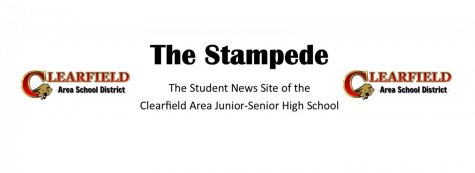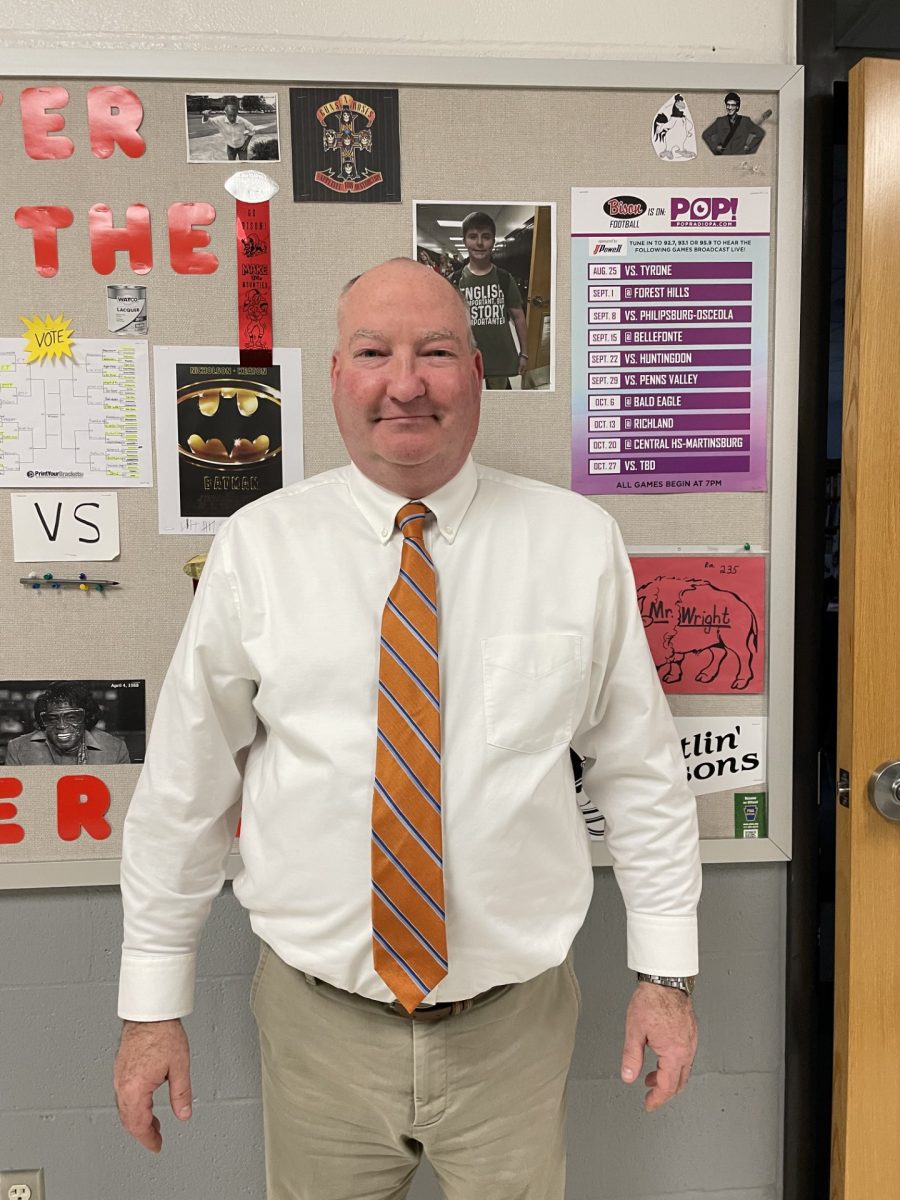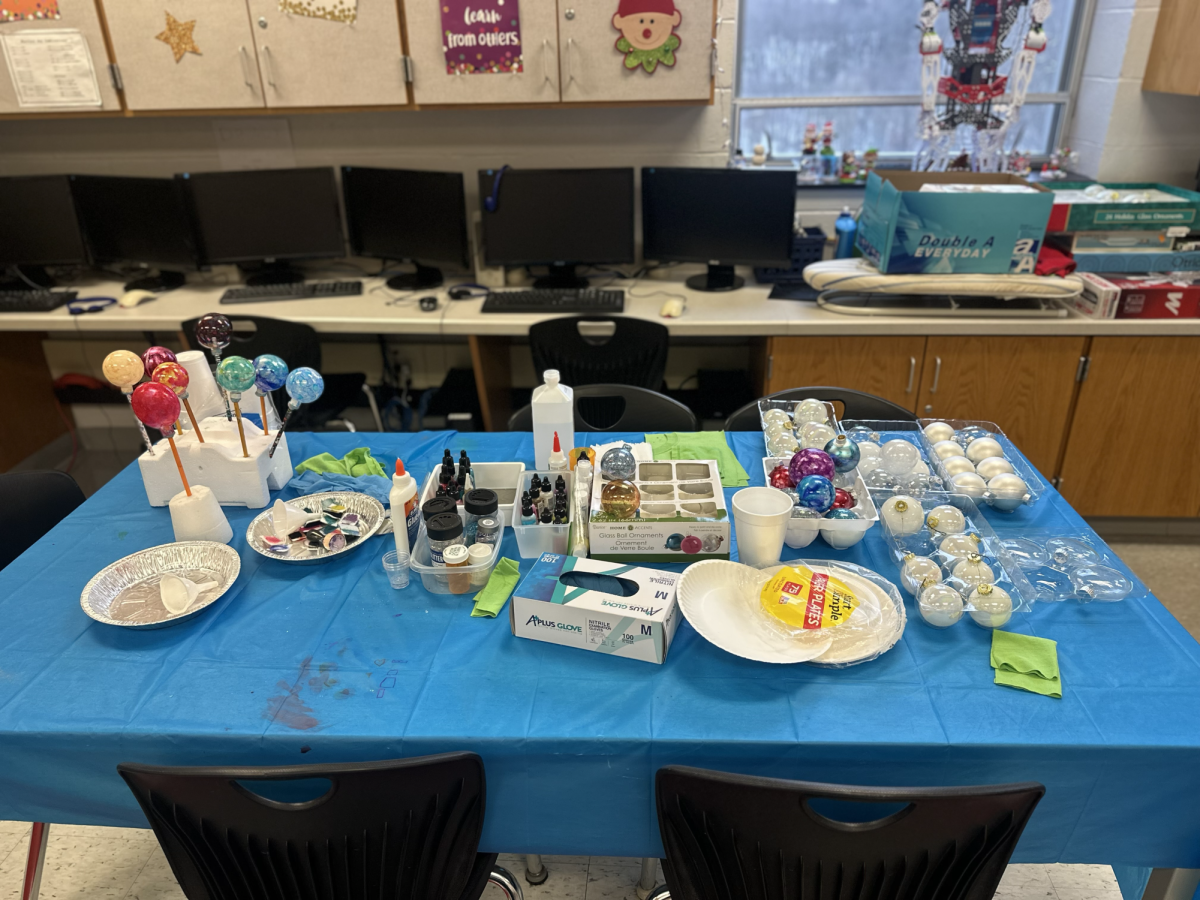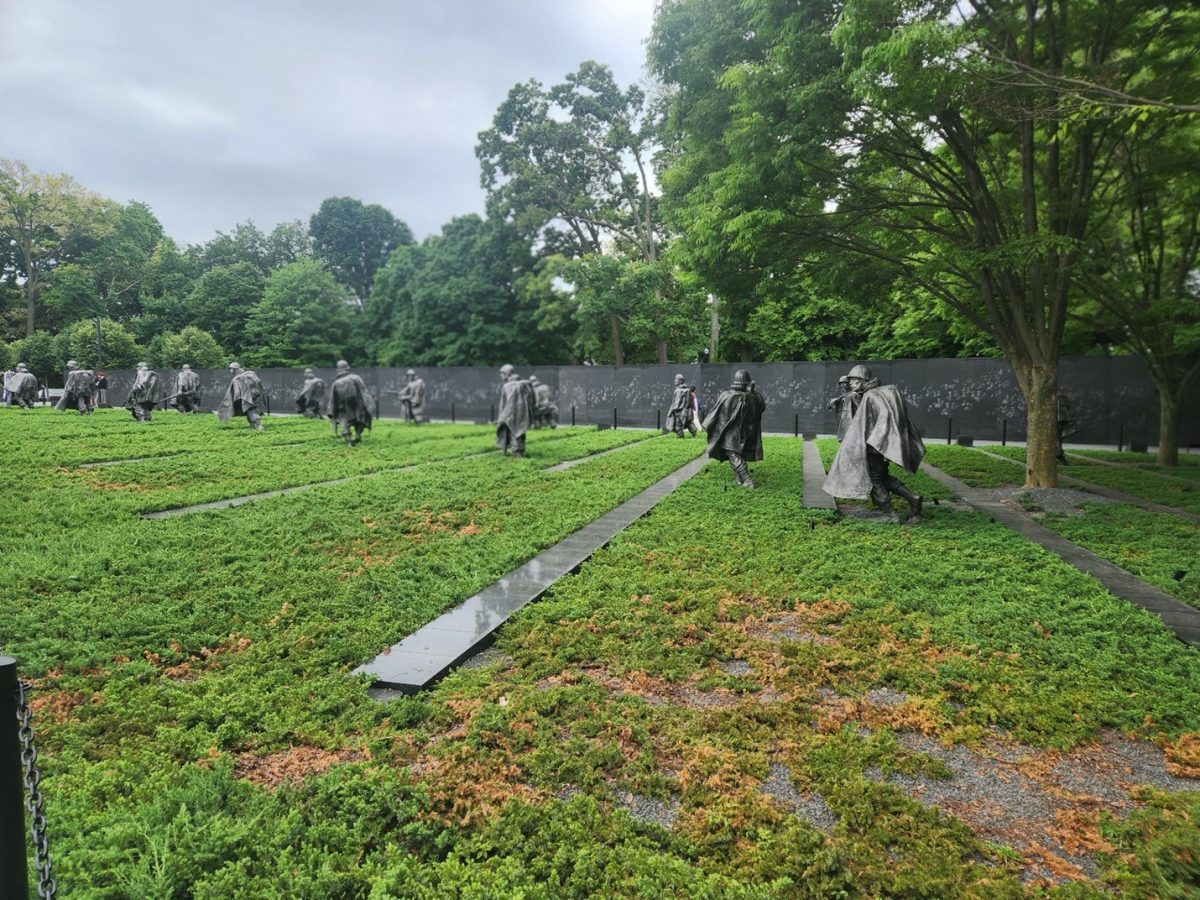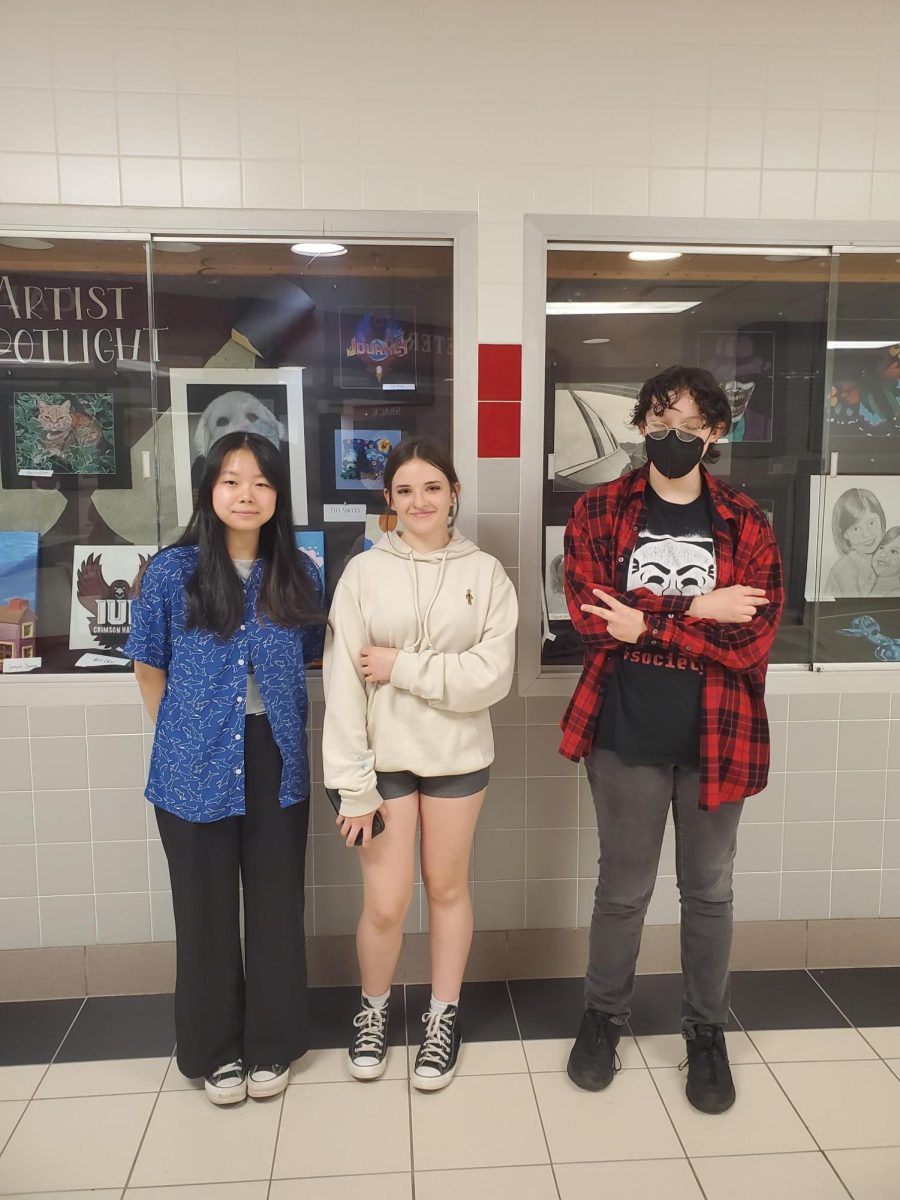This year, Mr. Wright has taken over for the retired Mr. Billotte in teaching psychology and sociology. In this class, we model certain ideas in psychology using simple experiments. For example, in order to display the idea of classical conditioning, Mr. Wright chose a student to sit across from him in a chair, and the student was blindfolded. Mr. Wright then began to read off a list of words, and when he said the word “can,” the student was sprayed with a water gun. The student began to flinch at the sound of the word, and this showed the class what classical conditioning looks like. Mr. Wright has displayed multiple mini experiments like this one, and they really help in simplifying concepts in psychology.
Q: Do you come up with the activities in class, or can they be found online?
I use a variety of resources to find activities for use in class. College Board has some teacher resources and an online AP Teacher Community. Some resources are found in the textbook, and some others I find listening to psychology podcasts, reading on my own, or online. If an idea sounds like it will drive a concept home and seems fun, I try it. Usually, I use my kids as guinea pigs at home to test things out. If it works on them, I’ll try it in class.
Q: If the class does not respond to an experiment the way you intended, what do you do with that information?
I make notes on the assignments that I plan to reuse in the future to see if I can make it better for next time. I use student input a lot to make improvements to instruction. Sometimes it can be disappointing when a lesson doesn’t go well, but tomorrow is another day!
Q: Why do you utilize hands-on learning experiences in this class? Do you believe that many ideas in psychology can be applied to these activities?
Hands on activities are always better than a textbook, lecture, or power point because students are less likely to tune out or stare at their phone. The challenge is finding the time to find engaging activities that relate to a lesson or concept and finding time to prepare in a busy day. Texts and lectures are important, but it is more fun to come up with activities that reinforce what is supposed to be learned.
Q: Do your classes usually give data aligning with the idea(s) being displayed, or are there often deviations from the intended results?
Usually, the activities or experiments have predictable results, but not always! When the results are unexpected, we use the scientific method to explain why we obtained the results we did.
Q: What have you learned as a psychology teacher so far?
I have learned a lot teaching psych for the first time. Pacing lessons for an introductory course is tough. Lots to cover in a short period of time! It’s one thing to take the classes, but entirely another when responsible for teaching it. I’ve learned a lot of new information about the human brain and mental health. I have connected with some students in a good way, and I believe learning more about psychology can have a positive impact in their lives.
Q: What resources do you recommend for students to find and try experiments of their own?
The place to start would be the American Psychological Association or APA. American Psychological Association (APA) Students already taking AP Psych can also find lots of resources through their college board account. Students who are interested in learning more should take AP Psychology and Sociology to learn more about it!
